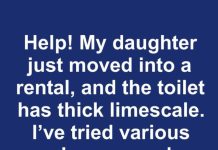Exciting news: There’s a new organizational how-to in town. Look out, Marie Kondo, and make way for The Gentle Art of Swedish Death Cleaning: How to Free Yourself and Your Family From a Lifetime of Clutter. The author, Margareta Magnusson, who is “somewhere between 80 and 100,” started the process of cleaning out her home and organizing her affairs for her heirs, and found it so rewarding that she wrote a book about it.
Questions: 1) What is death cleaning
2) What makes it different from Marie Kondo
3) Why is it not called just “cleaning out your home and organizing your affairs for your heirs”?
Answers:
1) According to Whimn, it’s a process (that ideally starts in your 50s) of slowly giving away extraneous possessions;
2) it is decluttering, but with an additional advice about how to deal with the practical matters surrounding death; and
3) that doesn’t make a very good book title.
This has sparked an interesting discussion on Metafilter, because anyone who is aging or has aging parents has a dog in this fight. There are stories of on-the-ball grandparents who left organized financial records and minimal stuff, and stories of despair at cleaning out hoarders’ houses full of junk. Some people think, as Alan Alda reportedly joked, that it’s okay to leave a household of un-edited stuff (What do we care? We’re dead) and others think it is both a responsibility and a kindness to streamline the process as much as you can for your loved ones after you go.How to Deal With Your Parents’ Stuff When They Die
Cleaning out a loved one’s home after their death hits the trifecta of misery: It’s a series of…Read more
I’m with the streamliners, with caveats. For one, none of us knows when we’re going to go, and if I corked off tomorrow I would definitely be leaving behind a closet full of unworn clothes, a lot of CDs I still haven’t put on my computer, and a lot of random hand-written notes that say things like “buy TP, maybe write story about french parents? password to bank account is BANKTIME.” My will is…somewhere. (Probably filed under D for “dead.”) Dying is not like leaving for a trip, in which you clean yourself out the door—all of us will leave behind some unfinished business and a half-eaten carton of yogurt in the fridge. And two, we all have attachments to stuff that is meaningless to other people, so it’s hard to encourage someone else to declutter when you don’t fully comprehend how safe and cozy their shelf of Hummel figurines makes them feel. So we all have to tread carefully with helping loved ones clean out.










